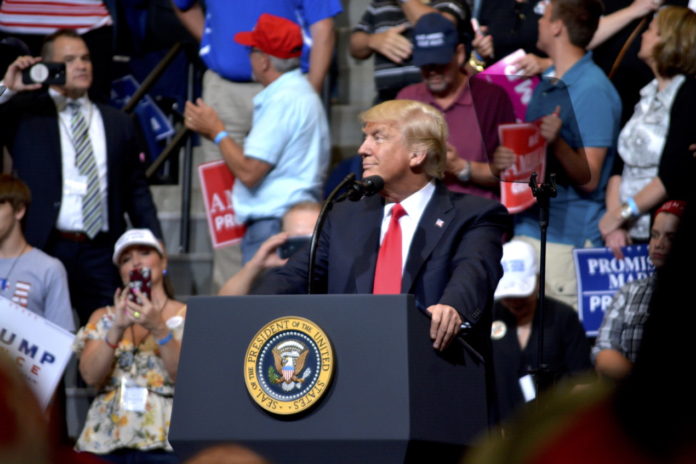
WASHINGTON – The Supreme Court decided Monday to hear arguments on the constitutionality of President Donald Trump’s executive order limiting travel to the United States from several Arab countries.
While the case will not be heard until October, the Supreme Court has partially granted the Trump administration’s request for a stay of lower court decisions.
The revised travel ban (EO-2) was issued in March. It identified six countries – Iran, Libya, Somalia, Sudan, Syria, and Yemen – as being a significant risk of terrorism targeted at the United States. Citizens of these countries would have been banned from entering the United States for 90 days, while the refugee process would have been suspended for 120 days, with the country’s refugee intake for the fiscal year capped at 50,000.
Lower court decisions had thrown out the executive order entirely. The Supreme Court granted partial relief from the lower court’s injunctions, taking a more nuanced view than either the Trump administration or the lower courts did.
“In practical terms, this means that §2(c) may not be enforced against foreign nationals who have a credible claim of a bona fide relationship with a person or entity in the United States. All other foreign nationals are subject to the provisions of EO–2,” the unsigned court opinion reads.
The decision to hear the case was made unanimously among the nine Supreme Court justices. However, Justices Clarence Thomas penned a partial dissent, which Justices Samuel Alito and Neil Gorsuch joined. The objections therein are mostly confined to the way in which the majority granted partial relief of the injunctions.
“A court’s role is ‘to provide relief’ only ‘to claimants . . . who have suffered, or will imminently suffer, actual harm,’” Thomas wrote. “In contrast, it is the role of the ‘political branches’ to ‘shape the institutions of government in such fashion as to comply with the laws and the Constitution.’”
Thomas also believes that, legal principles aside, the majority’s compromise will prove simply unworkable.
“Today’s compromise will burden executive officials with the task of deciding—on peril of contempt— whether individuals from the six affected nations who wish to enter the United States have a sufficient connection to a person or entity in this country,” Thomas wrote.















